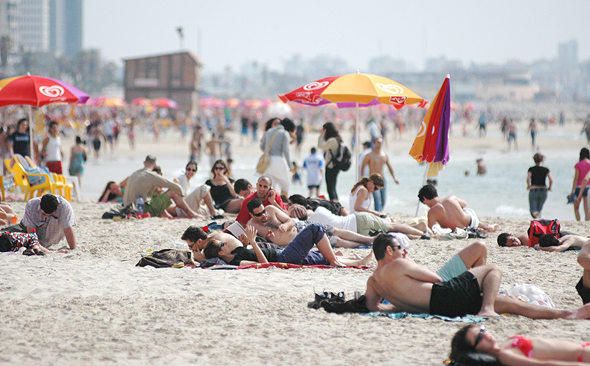Tel Aviv Claims it Has no Authority to Regulate Airbnb Rentals
In July, 12 Tel Aviv residents filed a petition against the city, demanding it take action against unlicensed short-term rentals
16:3123.12.19
Tel Aviv is claiming it has no authority to regulate the 10,000 plus short-term Airbnb rentals estimated to operate in the city without a business permit.
 Tel Aviv's beaches. Photo: Bloomberg
Tel Aviv's beaches. Photo: Bloomberg
Famous for its beaches, year-round warm weather, and bustling nightlife, Tel Aviv is a trendy tourism destination. The city’s popularity has propelled a booming Airbnb business, and the conversion of many local apartments into short-term rentals is pushing up already high real estate prices.
 Tel Aviv's beaches. Photo: Bloomberg
Tel Aviv's beaches. Photo: Bloomberg
A May report commissioned by housing organization Yes in my Back Yard (YIMBY) Tel Aviv found that 7,150 apartments in Tel Aviv, or 3.4% of all city apartments, are rented regularly for short term visitors through Airbnb. According to data provided by the city itself, one in three apartments in Kerem HaTeimanim, a historic central Tel Aviv neighborhood, are now used for short-term rentals, erasing the well-known small neighborhood feel of the area.
What’s more, Airbnb apartments often encroach on the day-to-day lives of the long-term residents. In July, 12 local residents filed a petition to a Tel Aviv district court against the city and its mayor Ron Huldai, demanding they take action against unlicensed rentals and require a business license as well as a nonconforming use permit for hosts.
Tel Aviv recently submitted its statement of defense, saying that current regulation limits its authority to manage the problem of short-term rentals. The city tried to use its limited tools by raising the municipal tax for all Airbnb rentals, but was blocked by the Ministry of Interior, it said. The city, therefore, asked the court to reject the lawsuit against it.
On Sunday, the court held a closed discussion of the case. The plaintiffs’ legal representative Meir Aharoni claimed the city’s defense did not answer the specific legal claims made in the case. The plaintiffs are not against Airbnb as a whole, but rather demand that the city take action against those who use residential apartments unlawfully with negative consequences for other residents, he said, adding that the court has the authority to require that the city demand business license or a nonconforming use permit, or both.
Countering judge Abigail Cohen’s statement that enforcement is difficult due to the scope of the Airbnb phenomenon, Aharoni said that such apartments are publicized on various websites, and are also reported by nearby residents. The city has previously taken action against unlicensed use of residential apartments, such as the operation of kindergartens without a nonconforming use permit. The city also set up an information hotline when it chose to take action against owners who split their apartments into two separate spaces or more without the proper permits.
Aharoni also cited several recent decisions made by the magistrate’s court in Safed, following a petition by the city. There, the court determined that short-term rental apartments require a nonconforming use permit, and issued several cease and desist orders.
But Safed, with its population of less than 100,000, is different from Tel Aviv, Cohen said. “One can send inspectors to every house in the city,” she said. The law needs to be amended to provide Tel Aviv with tools for criminal procedures, which it currently does not have, she said. “It is a fundamental issue that pertains to more than just Tel Aviv, and requires regulation that cannot exist using the current tools,” she said, adding that as the court will find it difficult to decide the case, Israel’s attorney general is expected to be consulted on the matter soon.



